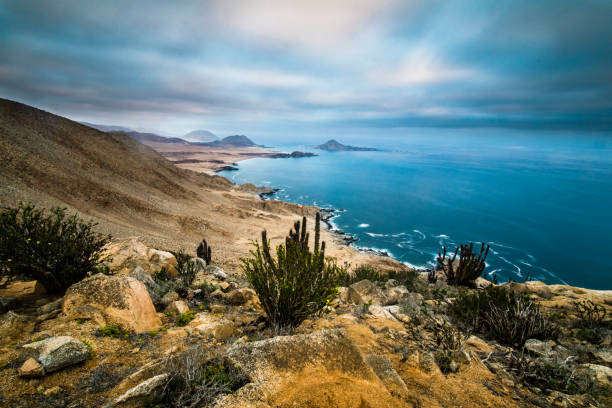
Parque Nacional Pan de Azúcar Adventures
Parque Nacional Pan de Azúcar protects a dramatic coastal desert landscape on Chile's northern coast, offering unique desert and marine ecosystems along with opportunities for hiking, wildlife observation, and historical exploration.
About Parque Nacional Pan de Azúcar

Parque Nacional Pan de Azúcar is located along the arid coast of the Atacama Desert in northern Chile, encompassing an area of coastal cliffs, rocky outcrops, and desert plains that meet the Pacific Ocean. Established in 1985, the park protects dry desert habitats that are home to a rich diversity of plant and animal species adapted to extreme conditions. Its geography features rugged hills like the iconic Pan de Azúcar Hill, which rises sharply near the coast, providing panoramic views over the ocean and desert. The park is a refuge for notable species such as the endangered guanaco, the marine otter, Humboldt penguins, and various seabirds like the Peruvian booby and cormorants. Visitors can hike several trails that traverse desert landscapes and coastline, explore wealth of marine biodiversity along the beaches, and visit historical sites like former mining settlements. The park also includes a Marine Protected Area which safeguards important marine habitats and supports conservation efforts. Outdoor enthusiasts appreciate the combination of desert trekking, wildlife watching, and coastal scenery. The region’s dry climate offers sunny weather most of the year, albeit with cool sea breezes. Parque Nacional Pan de Azúcar appeals to travelers interested in unique ecosystems, remote natural beauty, and opportunities for photography, especially capturing desert flora, seabirds, and the striking contrast between desert and ocean.
Highlights
Pan de Azúcar Hill – panoramic viewpoint overlooking desert and Pacific Ocean
Humboldt penguin colonies and diverse marine wildlife along the coastline
Well-preserved Atacama Desert flora including cacti and coastal desert plants
Ruins of old mining camps reflecting the region’s mining history
Notable Natural Features
Pan de Azúcar Hill
A prominent rocky hill rising close to the shore offering sweeping views of the desert landscape and coastline.
Humboldt Penguin Colonies
Coastal areas within the park serve as nesting grounds for Humboldt penguins, a vulnerable species endemic to this Pacific region.
Atacama Desert Coastal Vegetation
Unique desert plants and cacti adapted to the hyper-arid conditions form distinct vegetation zones.
